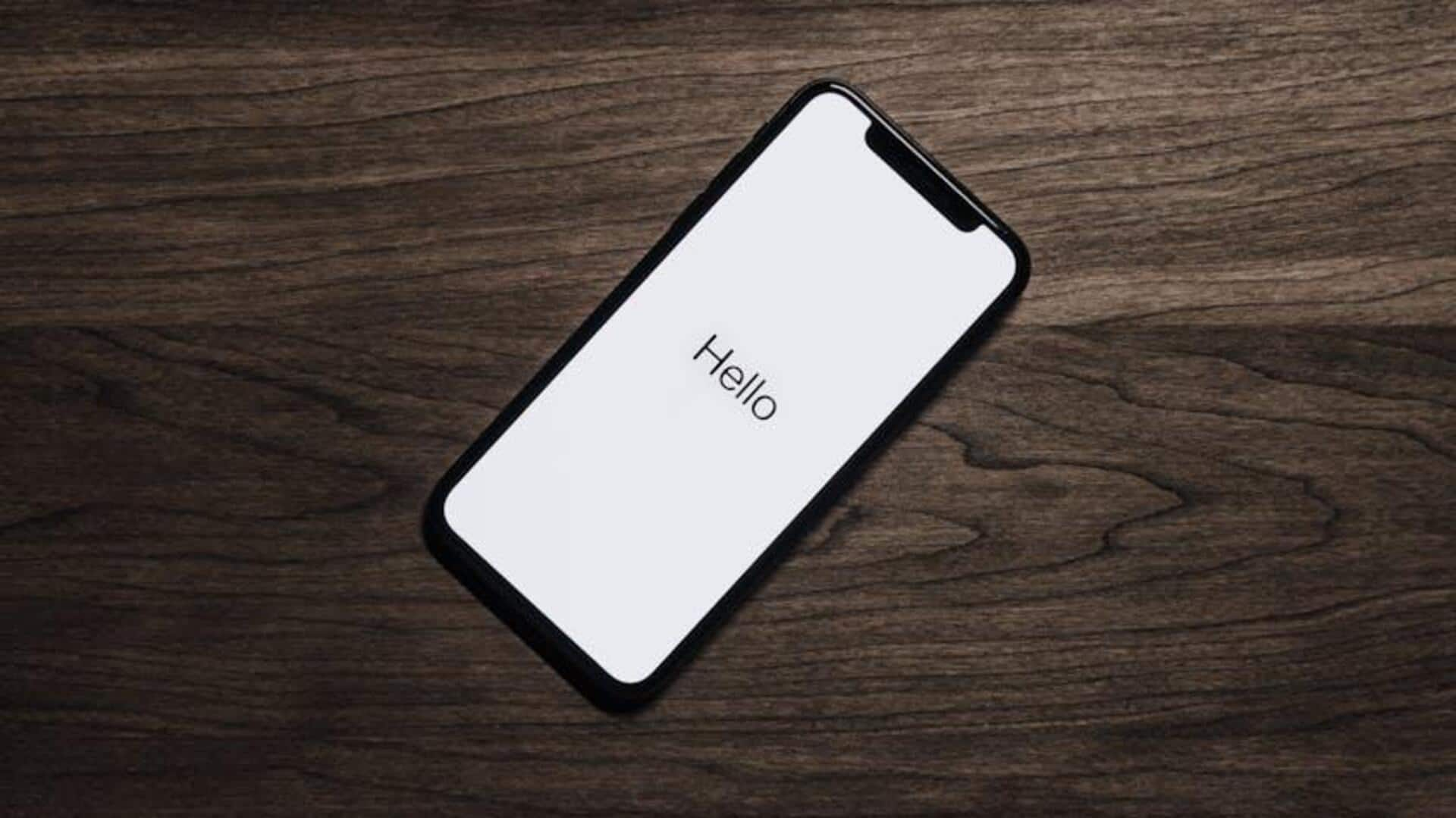
How you can secure your phone (no special apps needed!)
What's the story
In today's digital age, securing your smartphone is more important than ever. As we store more and more personal data on our devices, it is imperative to take advantage of the built-in features to stay protected. From Android to iPhone, many smartphones offer some really solid security options to keep your data safe from prying eyes. Here's how you can benefit from them.
Two-Factor
Enable two-factor authentication
Two-factor authentication adds an extra layer of security by requiring a second form of verification along with your password. This could be a code sent via SMS or an authentication app. Enabling this feature ensures that even if someone gets hold of your password, they cannot access your account without the second factor. Most smartphones offer this option for various apps/services, making it a vital step in securing your device.
Biometrics
Use biometric authentication
Biometric authentication unlocks your phone using unique physical characteristics like fingerprints or facial recognition. The method is more secure than traditional passwords, as it relies on something inherent to you rather than something you know or have. Most modern smartphones support biometric options, offering a convenient, yet secure, way to protect sensitive information stored on your device.
Updates
Regularly update software
Keeping your phone's software up-to-date is critical for maintaining security. Manufacturers frequently release updates that patch vulnerabilities and improve overall system protection. By enabling automatic updates or regularly checking for new versions manually, you ensure that any potential security flaws are addressed promptly, reducing the risk of exploitation by malicious actors.
Encryption tools
Utilize built-in encryption tools
Encryption tools turn your data into a coded format that can only be accessed with the right key/password. Most smartphones provide built-in encryption options for internal storage and external memory cards. Enabling these tools make sure that even if someone gets hands-on with your device, they won't easily be able to access sensitive information without decrypting it first.
App permissions
Manage app permissions carefully
Managing app permissions essentially means looking at what access every app has on your phone and changing settings accordingly. Some apps ask for permissions beyond their functional requirements; if granted unnecessarily wide access rights, they can compromise your privacy and security. Regularly auditing these permissions ensures that you have control over what apps can access, while minimizing exposure to threats from malicious software posing as legit apps.